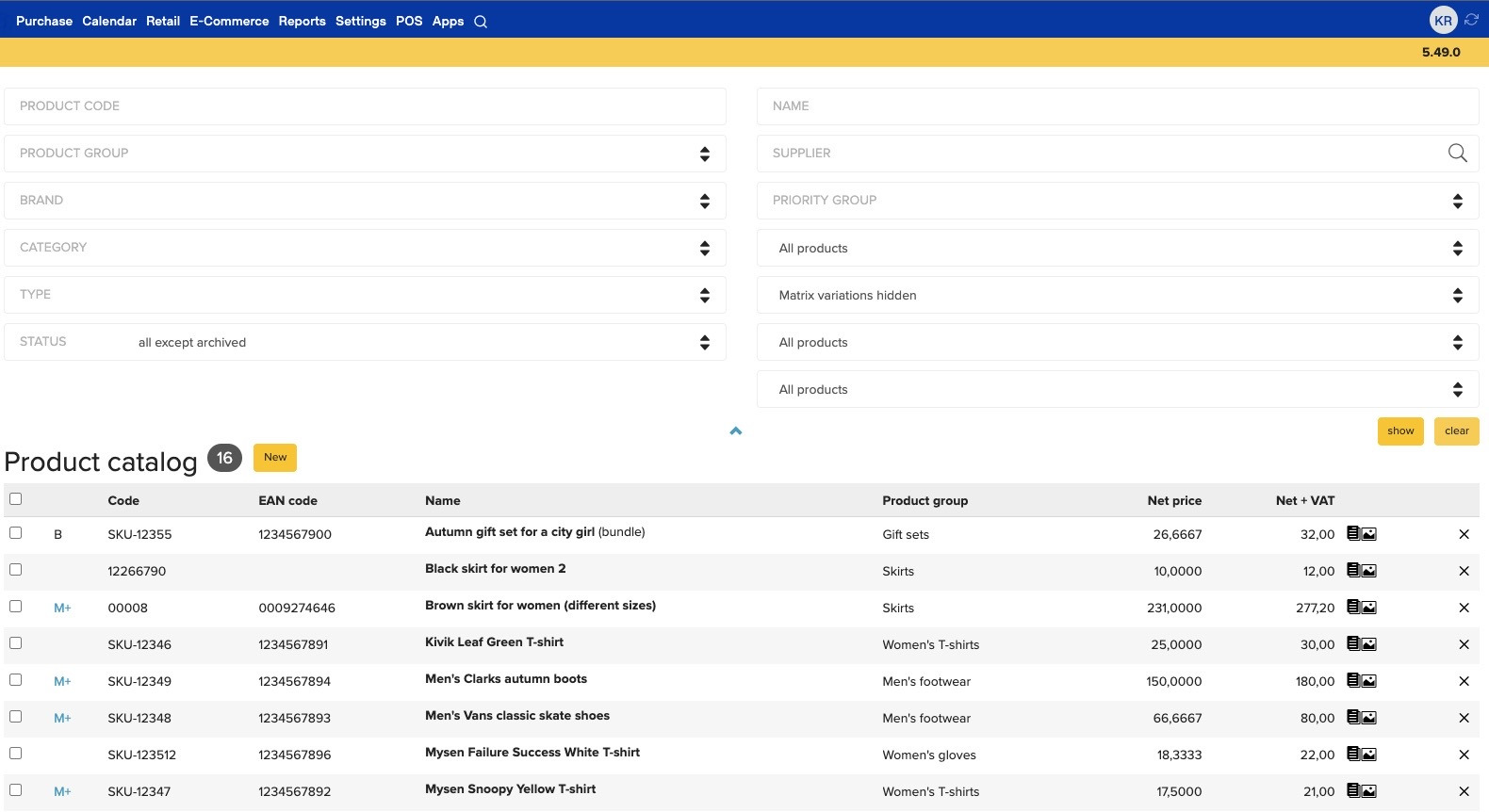Everyone with a little interest and enterprise can grab their share of the blooming international ecommerce trade. Weighing your options is equally important whether you want to start from scratch with your web store or use it to complement your existing brick-and-mortar store. Erply makes establishing a web store simple and doable for everybody with little to no IT skills required.
As Erply’s customer, you have two important advantages to setting up a web store – Erply’s API doesn’t set any interface limitations, and we offer an ecommerce interface that we’re constantly improving and adding new functions to based on customer feedback and experience. This means that our ecommerce interface is user-friendly and logical – just as you’d expect from Erply’s products.
We’ve discussed our Shopify interface in earlier posts here, here and here. But what are some of the other options available when starting your online business with Erply and which platform is best suited for you?
Which Platform Should You Choose?
Yes, Shopify is undeniably the most popular platform because of its simple and intuitive nature; it even gives each user instructions on how to make most of the platform. However, you should also look at other options, which might be better suited for your unique needs than the universal Shopify.
BigCommerce offers the largest selection of functions and excellent social media marketing options with powerful SEO tools. The platform is seen as ideal for companies with a growth plan.
WooCommerce is especially comfortable and simple for WordPress users; actually, WordPress is the most important criterion when it comes to this plugin.
Magento offers excellent options for merchants looking to take charge of all aspects of their web store. For example, the platform supports cross-marketing and additional sales options; payments, delivery charges, etc. have already been integrated. On the other hand, Magento’s drawback might be that it requires the user to have comparatively more developer skills than other platforms, and you’ll need to find a website host.
OpenCart is ideal for small business that don’t plan to grow immensely – the platform’s basic functions are free to use; it’s handy and easy to manage. Do take into account, though, that any other modules you might need to add to the basic functions later on come with a hefty price.
Wix is perfect for those with no prior experience in ecommerce. If this is you, consider Wix as an easy-to-manage platform that can be used to set up your web store or website.
PrestaShop is a user-friendly site with a plethora of options; it supports over 50 languages – a huge boon – plus customer groups, discounts, a store finder option and other functions that promote business.
For a closer look take an extra tour here – check our big comparison table of ecommerce platforms.
Be Sure to Do Your Homework
Once you’ve selected the platform(s) that best suit your business, you should check the service provider(s)’s websites and forums to find answers to some other questions:
- What’s the end price – monthly or annual payments? Are there any hidden fees?
- What type of platform is it? Is it SaaS (software as a service) i.e. a service, where the user pays to access the website, or Open Source, i.e. open-source code, meaning that the platform has community and developer support and is free to use.
- Does the platform have the payment and delivery options relevant to you and are the services user-friendly (e.g. how many stages does the customer have to go through to make a payment)?
- Do the platform’s functions allow you to use SEO and SMO tools to optimize your web store?
- Does the platform grant you access to analyses and user data?
- Can you manage the website yourself?
- Can you try out a demo?
- Does the platform have a forum for sharing experiences?
- Is there someone to turn to in case of urgent problems?
Erply’s eCommerce Interface
Erply’s customers are used to the fact that our software solutions are comprised of modules that users can add as needed and combine to suit their needs. Functionality and user-friendliness are our key arguments.
Naturally our web store interface also offers a variety of modules for your company’s individual demands. No need to fear that the business will overwhelm you – you can initially limit yourself to orders that are transferred from the web store to Erply for easy management.
You might also want to start off only with the product catalogue app and add functions (payment and customer data, inventory management, etc.) as the store expands and you’ve garnered more experience.
In short, Erply allows you to keep your expenses in check and set up your ecommerce business without having to jump into the entire service package. Keep in mind that Erply offers an open API, which means that system integration is easy and mess free.
Contact our ecommerce specialists at [email protected] or by calling +1 917 210 1251.
Sign Up









